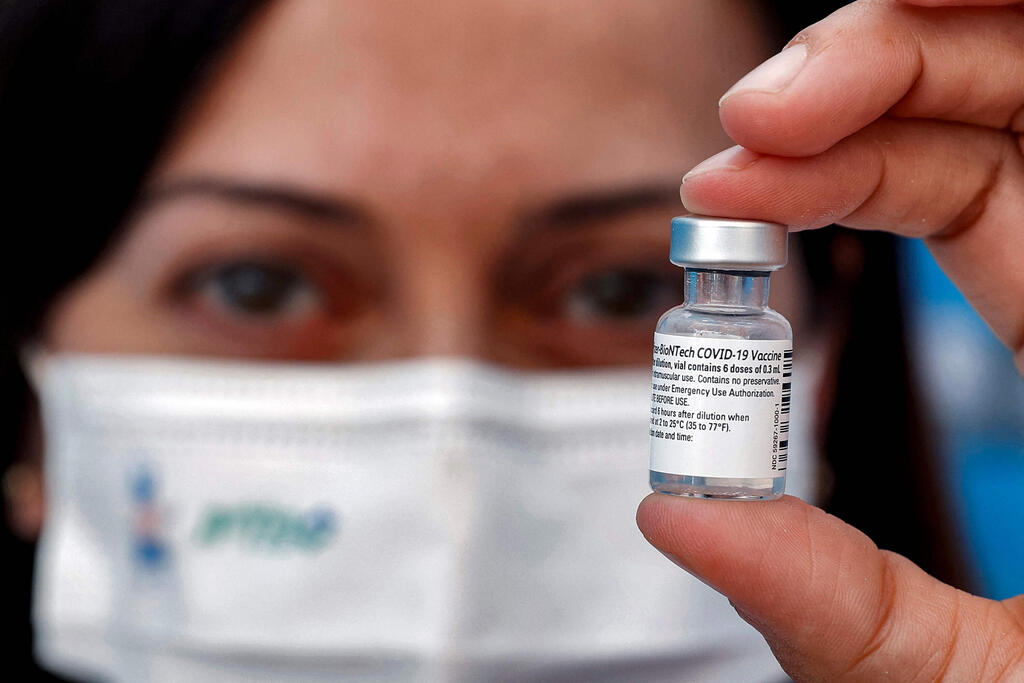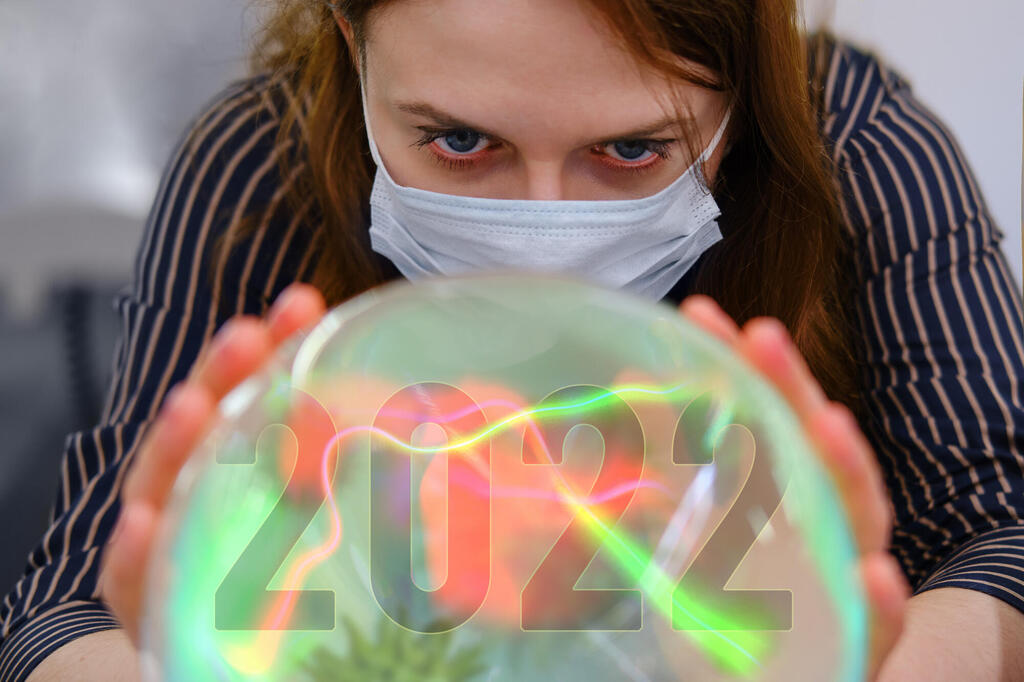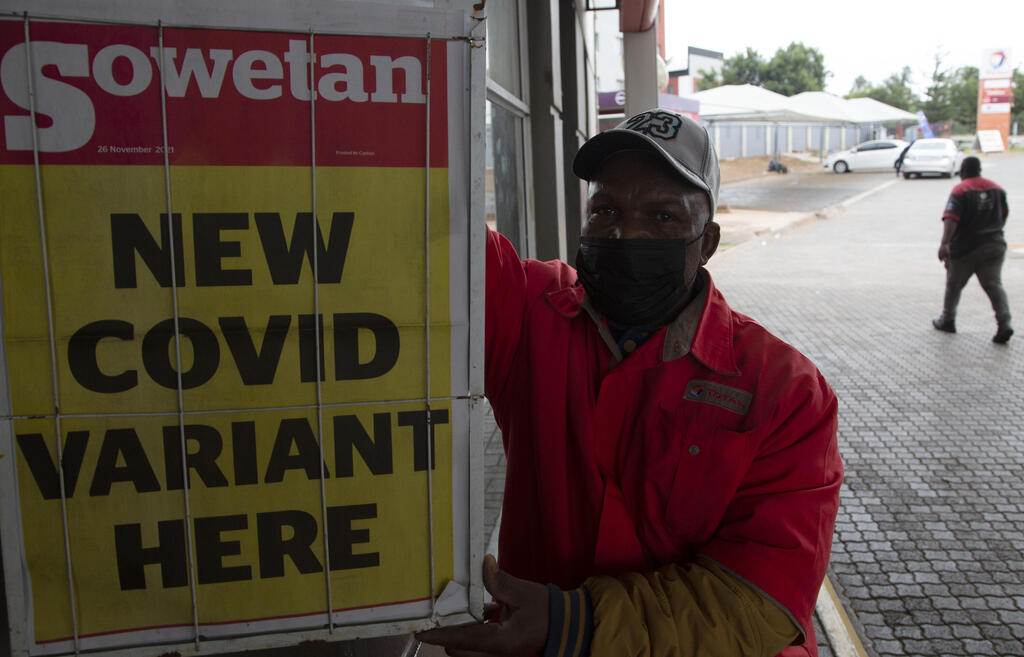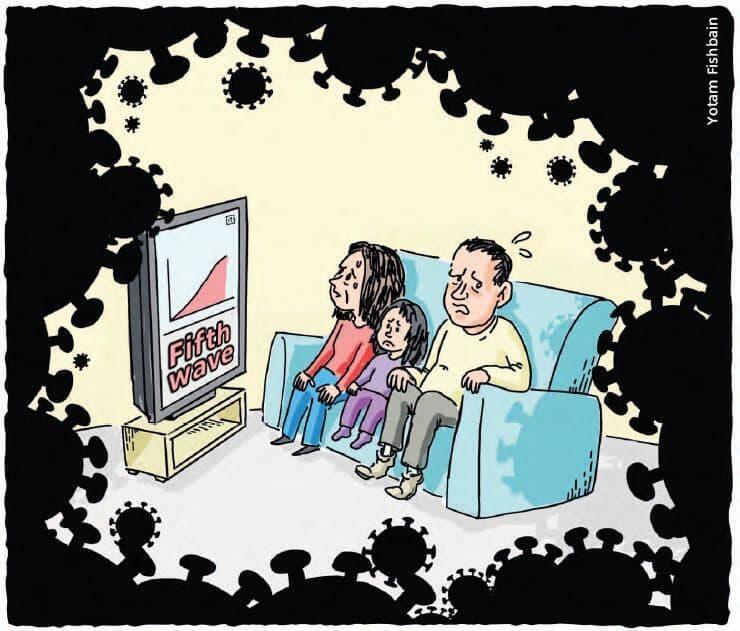With the new year already at our doorstep as the pandemic still rages on, it is time to summarize the departing year and try to envisage what a future alongside COVID-19 might have in store for humankind.
"It is clear that the coronavirus pandemic will transform the coming decades for human society," says Israeli futurist Prof. David Passig. And while Pfizer has pointed to 2024 as a possible exit date for the pandemic, Passig is highly skeptical it will be over before the end of 2025.
"There are two or three more waves at the very least, when I said at the beginning of the pandemic that there will be between six to eight waves, everyone thought I was crazy. But I kept saying that at the current rate this virus spreads, it will take time until the coronavirus crisis disappears completely."
Passig says that he bases his predictions off of simulations he and his colleagues ran in the early days of the pandemic, taking into account a whole host of biological, economic and political variables.
"Back in March 2020, I argued that the variables that would affect COVID's decay rate were global collaboration, a change of attitude among vaccine opponents and ensuring the whole world got the vaccine," Passig explains.
"As long as the pandemic is still spreading somewhere around the globe, it won't end completely. It will continue to evolve, resurface, and create new variants. Mankind must do whatever it can to make sure everyone receives the vaccine."
He also believes that COVID-19 can go down as one of the shortest pandemics in human history since it managed to develop a vaccine and distribute it to almost half of the world's population within just over a year. However, he reserves that the world's current vaccination situation won't suffice in order to eradicate the pandemic and that a change of conduct is also needed.
4 View gallery


A medic holds up a vial of the Pfizer-BioNTech COVID-19 coronavirus vaccine
(Photo: AFP)
Psychiatrist Dr. Ilan Tal concurs, saying that "COVID has thought us global responsibility. The world can't continue to act like atomized units, and countries can't make selfish decisions as they see fit. Only by joining forces will we be able to end this pandemic."
Passig also believes a key element in dealing with the pandemic is to shift the way we perceive democracy.
"The most important thing to do in dealing with the current epidemic is to bring about a serious reform to the question 'what is democracy', and to improve its definition. Because right now democracy is freedom of the individual, and people act as they see fit. Some get vaccinated, while others won't, and that's childish. This way of action is life-threatening, which can't exist during a pandemic. We must have complete responsibility to one another."
Dr. Tal compares the desired behavioral change to family codes.
"If Africa were our brother or a poor elderly man, how would we treat it? Would we leave them weak, or would we try to help them? Because there's an entire continent suffering from extreme poverty, and in the context of COVID, a whole continent struggles to get the required amounts of vaccines. And yet, the world won't do much to change it, but if it was our neighbor or our brother? We would take care of them immediately. We still didn't reach the level of empathy needed to support other countries, in this context, we are still childish."
Prof. Passig, at the same time, considers COVID to be a gift, teaching mankind to confront challenging situations together as it won't be the last pandemic. But not only that, mankind is facing and will face many other environmental, biological, economic, and social hardships.
"After thousands of years of existence, we've become a global entity, and this globality has its advantages, but also disadvantages. One of which is democracy. It's an important mechanism, but it's also very childish at this point in its development as a way of life. It leads us to lose the ability to differentiate which information is real and which fake," Passig says.
Tal also points to some faults in our emotional and mental behavior during the pandemic. "We have seen over the past year and a half and will continue seeing an increase in civil unrest and mental issues among the population — more depression, anxiety, behavioral disorders in children, addiction in adults, domestic violence and less self-regulation — because we've added the COVID issue on top of an already stressful life."
Tal also believes that COVID will have adverse effects on our psyche in the short run, but it might eventually prove to be a growing experience.
"Our brain's emotion center is primitive. After all, lizards can also feel anxiety. But they, unlike humans, have to see their adversary in order to prepare for it. Since human beings developed higher thinking, which can also imagine the future, anxiety evolved into thinking that something might happen. This is how the thinking part that gave us intelligence scares the primitive part, which is much more primal, and in which anxiety arises."
"When the thinking part of the brain scares the primitive part, it throws us off balance. And that's why during the pandemic we see more cases of domestic violence. If pre-pandemic we managed to keep our cool and not lash out at each other, now it's much more difficult," Tal says.
"But we are lucky to get this crisis. In the end, the most painful and hardest things make us evolve into something better. And after this pandemic, we will grow stronger and it will help us better understand how to cooperate as one and build a better society in the future."




